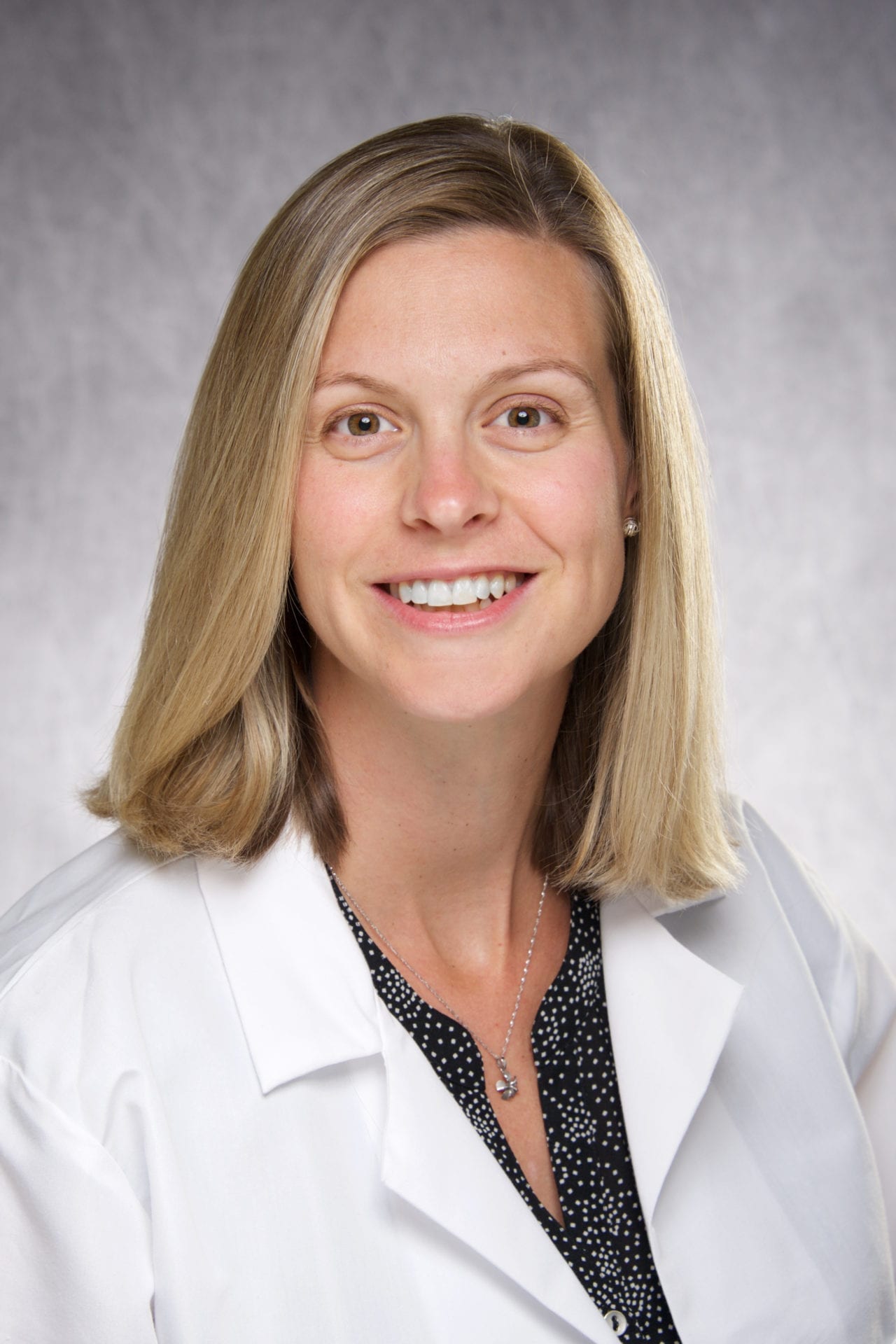Years That Way: Burnout and Gynecologic Oncology | Emily K. Hill, MD
As a resident and fellow, I had tunnel vision. For those eight years, I refused to let myself think in time increments longer than one week. I remember occasionally thinking about the big picture of the years I had left in training and quickly becoming overwhelmed. I’d dial back, to quiet the panic. For many of us, this works for a while.

Emily K. Hill, MD
It keeps us focused on the task at hand and somewhat oblivious to the sacrifices and stress that this job involves. Just don’t think about the fact that you don’t see your child for days at a time, that you haven’t exercised in years and eat mass-produced cafeteria food every day, that you are watching women die every day. I was fairly good at compartmentalizing all of that.
However, those of us that get good at this denial while in training have a new challenge when we become attending physicians. How do we redesign ourselves to function once this is not a temporary situation, but instead our ”real” life? To me, this has been an unexpected challenge but one that is innate to Gynecologic Oncology. What drew many of us to this specialty, the combination of complex surgery, medically complicated patients and continuity of care, leads this to be a singularly demanding field both technically and emotionally.
This is part of why burnout is so prevalent in gynecologic oncology. Not only are we responsible for the lives of the women on our OR table, but we are then called upon to diagnose recurrence when our treatment efforts have failed. We usher our patients and their families into death, and hopefully treat just long enough and palliate suffering when the time comes. It is an incredible privilege but also a damn hard job. And one that we are trained to do silently and stoically, without admitting the toll it takes on us and our loved ones, as that would be a sign of weakness.
Fortunately, we are starting to acknowledge our humanity and support each other in a way that is new in medicine. That is why I was eager to take part in the SGO Wellness Initiative.
I was fortunate enough to train with Dr. Skip Granai at Women & Infants Hospital, Brown University, in Providence, RI, in an oncology program that combines integrative care, music, art and self-expression, in addition to the traditional science of medicine. As a fellow, I saw this approach to the whole woman benefiting patients and their families. Now I am beginning to see how this can, and should, apply to us providers as well. Below is a poem that I wrote and recited as part of a required exercise during fellowship, which at the time felt torturous. In hindsight, it was a moment of powerful self-expression and recognition of my own humanity.
Years that Way
Emily K. Hill
Pressure cooker. Steam. Heat.
Wake. Go. Sleep brief.
Wants. Needs. Incessant beep.
Smile. Joke. Paper heap.
One week at a time. Years that way.
One day at a time. Afraid to say.
Approve, praise, not disappoint.
Nervous, angry, impending disjoint.
Surrounded by others’ loss and pain.
Petty excuses to drift – insane.
Too much thinking, dark spiral.
Busyness preserves survival.
If they go, why do this all?
Woman vs animal.
Recommended Reading:
- The Epidemic of Burnout, Depression, and Suicide in Medicine, MedPage Today
- Relationship Between Clerical Burden and Characteristics of the Electronic Environment With Physician Burnout and Professional Satisfaction, Mayo Clinic
- Three surprising truths about physician burnout, Advisory Board Session Document
“The moments of silence are gone. We run from them into the rush of unimportant things, so filled is the quiet with the painful whispers of all that goes unspoken. Busy-ness is our drug of choice, numbing our minds just enough to keep us from dwelling on all that we fear we can’t change.” L.M. Browning, Seasons of Contemplation: A Book of Midnight Meditations
Emily K. Hill, MD, is a Clinical Assistant Professor in Obstetrics and Gynecology at the University of Iowa Hospitals and Clinics in Iowa City, IA.